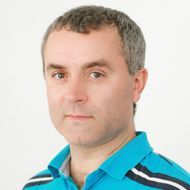- A
- A
- A
- ABC
- ABC
- ABC
- А
- А
- А
- А
- А
- HSE Campus in St. Petersburg
- Saint-Petersburg School of Social Sciences
- Department of Political Science and International Affairs
- News
- June 22, 2022. Round table: "Mechanisms of citizens' influence on the formation of state policy on the example of the city - the subject of the Russian Federation of St. Petersburg"
-
Departament
- About the Department
- Faculty and Staff
-
Annual Conference “The October Readings”
-
More About the Conference
-
Upcoming Conference
-
Archive
-
-
Academic Seminar
-
Upcoming seminars
-
Previous Seminars
-
198068 Saint Petersburg
Griboyedov channel embankment, 123, Room 324
t. +7 (812) 644-59-11, plus 61415
The Department was created on the basis of the Department of Politics, which was established in 2005. The main purpose of the department is to provide today’s students with professional training in the fields of political analysis and sociopolitical engineering, as well as in creating a special creative atmosphere that allows for the formation and development of a society of political experts who are capable of not only carrying out professional research, but also proposing and implementing solutions to relevant Russian and international problems.
 Federalism and Decentralization in Africa. Globalization and Fragmentation in Territorial Arrangements
Federalism and Decentralization in Africa. Globalization and Fragmentation in Territorial Arrangements
Issaev L., Захаров А. А.
Springer, 2024.
Клещенко Л. Л.
Вестник Волгоградского государственного университета. Серия 4: История. Регионоведение. Международные отношения. 2024. Vol. 29. No. 1. P. 77-86.
In press
Arkatov D., Filatova O.
In bk.: 17th International Conference on Theory and Practice of Electronic Governance (ICEGOV 2024), October 01–04, 2024, Pretoria, South Africa.. NY: ACM, 2024.
OxonCourts Judicial Studies Graduate Colloquium. OxonCourts Judicial Studies Graduate Colloquium. University of Oxford, 2019

June 22, 2022. Round table: "Mechanisms of citizens' influence on the formation of state policy on the example of the city - the subject of the Russian Federation of St. Petersburg"
On June 22, 2022, a round table was held on the topic "Mechanisms of citizens' influence on the formation of state policy on the example of the city - a subject of the Russian Federation of St. Petersburg". It was organized by the Research and Educational Group for Research on Youth Councils and Other Forms of Public Participation of the Department of Political Science and International Relations of the National Research University Higher School of Economics and the Strategy Interregional Humanitarian and Political Science Center. The purpose of this round table was to discuss the results of the project of the same name, implemented in 2021-2022. with the support of the RFBR-EISI grant by the creative team of teachers of the department under the guidance of prof. A.Yu. Sungurov.
The round table was attended by: N.V. Grokholskaya, Chairman of the Commission for the development of civil society, interaction with NGOs and the media of the Public Chamber of St. Petersburg, N.L. Evdokimova, member of the Council under the President of the Russian Federation for the development of civil society and human rights and secretary of the Human Rights Council of St. Petersburg, K.S. Sharygin, Advisor to the Commissioner for Human Rights in St. Petersburg, G.Ya. Moyzhes, Executive Director of the North-Western Association for the Development of Bicycle and Pedestrian Infrastructure "Let's Go, Let's Go", P.M. Khusu, head of the public movement "Petersburg cycling community", E.I. Mekhnetsova, former activist in the field of environmental protection, waste disposal and organization of a comfortable urban environment, deputy head of the St. Petersburg State Budgetary Institution "State Information and Methodological Center" Accessible Environment ", D.A. Arkatov, PhD student at the Higher School of Economics and Executive Director of the Interregional Center "Strategy", A.E. Dmitrieva, student of the bachelor's program "Political Science and International Relations" at the National Research University Higher School of Economics - St. Petersburg and president of the MOST Youth Humanitarian and Political Science Center, as well as other students of the same program.
The seminar was conducted by A.Yu. Sungurov, Professor, Head of the Scientific and Educational Group, President of the Interregional Center "Strategy".
During the seminar, the participants discussed the current state of the mechanisms by which ordinary citizens can influence the policy agenda of St. Petersburg and the decisions made. A special focus was on the most effective practices that can be emphasized at this stage of the city's development, as well as on promising solutions that will expand this toolkit.
The discussion turned out to be very interesting, as its participants considered the situation from different points of view and from different social positions. Interesting was the opinion of one of the participants that in the course of fairly close interaction it is sometimes possible to change the position of a partner - a responsible employee of a certain committee of the City Government. In particular, this was the result of a joint bike ride around the city. Participants gave examples of the most effective public councils under various committees.
We also note important information about the problems associated with the implementation of the regional component of grants from the Presidential Grants Fund. These problems are planned to be discussed at the September meeting of the Commission for the development of civil society, interaction with NGOs and the media of the Public Chamber of St. Petersburg.
An important result of the seminar was an agreement between the leaders of the St. Petersburg ANOs, researchers from the St. Petersburg HSE and responsible officials of the authorities to continue cooperation and work together to improve the quality of feedback between the authorities and citizens in the city.
At the end of the round table, its moderator suggested creating a coalition of NGOs to develop a partnership model of interaction between the authorities and public organizations, which could include the participants of this round table.
-
https://elearning.hse.ru/en/mooc/
Massive Open Online Courses
-
https://www.hse.ru/en/visual/
HSE Site for the Visually Impaired
-
http://5top100.com/
Russian Academic Excellence Project 5-100
- © HSE University 1993–2024 Contacts Copyright Privacy Policy Site Map
- Edit

